 Go to A-Z Databases: Books & eBooks to search for more eBooks. Must be on campus or login with your COM account for off campus access.
Go to A-Z Databases: Books & eBooks to search for more eBooks. Must be on campus or login with your COM account for off campus access.
Want more on finding books or eBooks? Try our How to Use Books & eBooks guides.
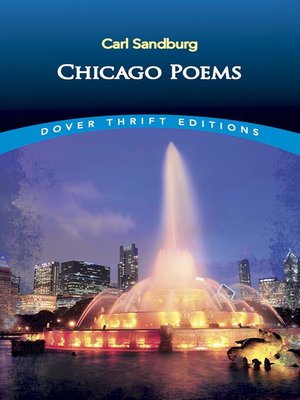 Chicago Poems
by
Carl Sandburg
Chicago Poems (1916) was Carl Sandburg's first-published book of verse. Written in the poet's unique, personal idiom, these poems embody a soulfulness, lyric grace, and a love of and compassion for the common man that earned Sandburg a reputation as a "poet of the people."
Chicago Poems
by
Carl Sandburg
Chicago Poems (1916) was Carl Sandburg's first-published book of verse. Written in the poet's unique, personal idiom, these poems embody a soulfulness, lyric grace, and a love of and compassion for the common man that earned Sandburg a reputation as a "poet of the people."
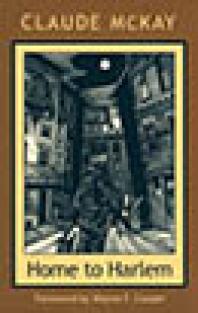 Home to Harlem
by
Claude McKay
A novel that gives voice to the alienation and frustration of urban blacks during an era when Harlem was in vogue.
Home to Harlem
by
Claude McKay
A novel that gives voice to the alienation and frustration of urban blacks during an era when Harlem was in vogue.
 Selected Poems
by
Claude McKay
In his 1918 autobiographical essay, "A Negro Poet Writes," Claude McKay (1889–1948), reveals much about the wellspring of his poetry.
"I am a black man, born in Jamaica, B.W.I., and have been living in America for the last years. It was the first time I had ever come face to face with such manifest, implacable hate of my race, and my feelings were indescribable … Looking about me with bigger and clearer eyes I saw that this cruelty in different ways was going on all over the world. Whites were exploiting and oppressing whites even as they exploited and oppressed the yellows and blacks. And the oppressed, groaning under the leash, evinced the same despicable hate and harshness toward their weaker fellows. I ceased to think of people and things in the mass. [O]ne must seek for the noblest and best in the individual life only: each soul must save itself.
Selected Poems
by
Claude McKay
In his 1918 autobiographical essay, "A Negro Poet Writes," Claude McKay (1889–1948), reveals much about the wellspring of his poetry.
"I am a black man, born in Jamaica, B.W.I., and have been living in America for the last years. It was the first time I had ever come face to face with such manifest, implacable hate of my race, and my feelings were indescribable … Looking about me with bigger and clearer eyes I saw that this cruelty in different ways was going on all over the world. Whites were exploiting and oppressing whites even as they exploited and oppressed the yellows and blacks. And the oppressed, groaning under the leash, evinced the same despicable hate and harshness toward their weaker fellows. I ceased to think of people and things in the mass. [O]ne must seek for the noblest and best in the individual life only: each soul must save itself.
 100 Selected Poems
by
E. E. Cummings
e.e. cummings is without question one of the major poets of this century, and this volume, first published in 1959, is indispensable for every lover of modern lyrical verse. It contains one hundred of cummings's wittiest and most profound poems, harvested from thirty-five of the most radically creative years in contemporary American poetry. These poems exhibit all the extraordinary lyricism, playfulness, technical ingenuity, and compassion for which cummings is famous.
100 Selected Poems
by
E. E. Cummings
e.e. cummings is without question one of the major poets of this century, and this volume, first published in 1959, is indispensable for every lover of modern lyrical verse. It contains one hundred of cummings's wittiest and most profound poems, harvested from thirty-five of the most radically creative years in contemporary American poetry. These poems exhibit all the extraordinary lyricism, playfulness, technical ingenuity, and compassion for which cummings is famous.
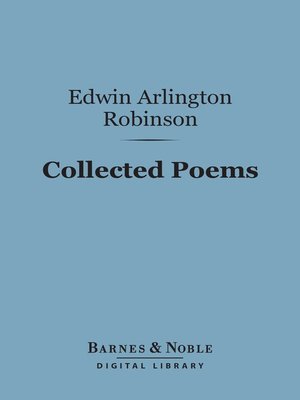 Collected Poems
by
Edwin Arlington Robinson
This 1921 collection of Robinson's poetry garnered him his first of three Pulitzer Prizes. The volume contains 166 selections in both long and short verse forms. Themes such as thwarted desires, bad luck, and personal struggles figure prominently here as in Robinson's other work. Among the selections are two of Robinson's best known poems, “Richard Cory," and “Miniver Cheevy."
Collected Poems
by
Edwin Arlington Robinson
This 1921 collection of Robinson's poetry garnered him his first of three Pulitzer Prizes. The volume contains 166 selections in both long and short verse forms. Themes such as thwarted desires, bad luck, and personal struggles figure prominently here as in Robinson's other work. Among the selections are two of Robinson's best known poems, “Richard Cory," and “Miniver Cheevy."
 My Grandpa and the Haint
by
Ernest J. Gaines
With his characteristically rich sense of place and deep understanding of the human psyche, Ernest Gaines, National Book Critics Circle Award winner and author of the classic novel A Lesson Before Dying, presents a raconteur's tale of rustic Southern living, A selection from Gaines's collection of prose, Mozart and Leadbelly.
My Grandpa and the Haint
by
Ernest J. Gaines
With his characteristically rich sense of place and deep understanding of the human psyche, Ernest Gaines, National Book Critics Circle Award winner and author of the classic novel A Lesson Before Dying, presents a raconteur's tale of rustic Southern living, A selection from Gaines's collection of prose, Mozart and Leadbelly.
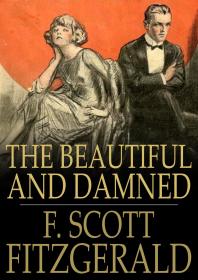 The Beautiful and Damned
by
F. Scott Fitzgerald
F. Scott Fitzgerald's second novel, The Beautiful and Damned explores many of the same themes and subjects that would animate his later work, including Tender is the Night and The Great Gatsby. This novel delves into the mysteries and complexities of marriage, taking as its focus the relationship of heir and bon vivant Anthony Patch and his wife Gloria, a couple that critics believe reflect many autobiographical elements of the tempestuous bond between F. Scott Fitzgerald and his wife, the artist and flamboyant flapper Zelda.
The Beautiful and Damned
by
F. Scott Fitzgerald
F. Scott Fitzgerald's second novel, The Beautiful and Damned explores many of the same themes and subjects that would animate his later work, including Tender is the Night and The Great Gatsby. This novel delves into the mysteries and complexities of marriage, taking as its focus the relationship of heir and bon vivant Anthony Patch and his wife Gloria, a couple that critics believe reflect many autobiographical elements of the tempestuous bond between F. Scott Fitzgerald and his wife, the artist and flamboyant flapper Zelda.
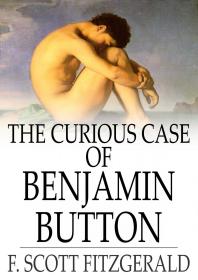 The Curious Case of Benjamin Button
by
F. Scott Fitzgerald
"The Curious Case of Benjamin Button" is a 1922 short story by F. Scott Fitzgerald. The story begins in 1860, just before the beginning of the American Civil War, with the birth of the central character, Benjamin Button. Benjamin is born with the body and demeanor of a very old man and within a few hours is already able to talk. To dodge humiliation, Benjamin's father makes him to shave and dye his hair to make him look more like the child he is supposed to be. As the tale evolves it becomes obvious that Benjamin is aging in reverse. "The Curious Case of Benjamin Button" has been adapted into a blockbuster movie starring Cate Blanchette and Brad Pitt in what's been deemed "the finest performance of his career".
The Curious Case of Benjamin Button
by
F. Scott Fitzgerald
"The Curious Case of Benjamin Button" is a 1922 short story by F. Scott Fitzgerald. The story begins in 1860, just before the beginning of the American Civil War, with the birth of the central character, Benjamin Button. Benjamin is born with the body and demeanor of a very old man and within a few hours is already able to talk. To dodge humiliation, Benjamin's father makes him to shave and dye his hair to make him look more like the child he is supposed to be. As the tale evolves it becomes obvious that Benjamin is aging in reverse. "The Curious Case of Benjamin Button" has been adapted into a blockbuster movie starring Cate Blanchette and Brad Pitt in what's been deemed "the finest performance of his career".
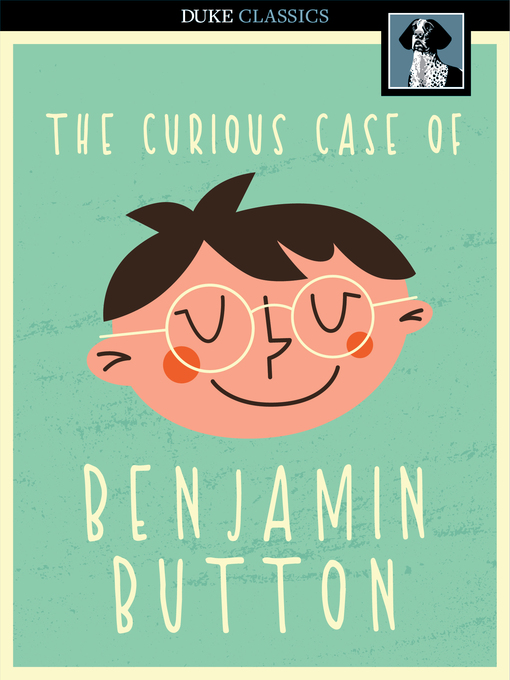 The Curious Case of Benjamin Button
by
F. Scott Fitzgerald
Recently the basis for a major motion picture starring Hollywood golden boy Brad Pitt, "The Curious Case of Benjamin Button" was written in 1922 by the golden boy of early twentieth-century American fiction, F. Scott Fitzgerald, author of such era-defining masterworks as The Great Gatsby and Tender is the Night. The tale follows the travails and triumphs of the title character, who is born in the body of an elderly man and becomes progressively younger over the course of his life.
The Curious Case of Benjamin Button
by
F. Scott Fitzgerald
Recently the basis for a major motion picture starring Hollywood golden boy Brad Pitt, "The Curious Case of Benjamin Button" was written in 1922 by the golden boy of early twentieth-century American fiction, F. Scott Fitzgerald, author of such era-defining masterworks as The Great Gatsby and Tender is the Night. The tale follows the travails and triumphs of the title character, who is born in the body of an elderly man and becomes progressively younger over the course of his life.
 Curious Case of Benjamin Button : And Other Tales of the Jazz Age
by
F. Scott Fitzgerald
"The Curious Case of Benjamin Button" is a 1922 short story by F. Scott Fitzgerald. The story begins in 1860, just before the beginning of the American Civil War, with the birth of the central character, Benjamin Button. Benjamin is born with the body and demeanor of a very old man and within a few hours is already able to talk. To dodge humiliation, Benjamin's father makes him to shave and dye his hair to make him look more like the child he is supposed to be. As the tale evolves it becomes obvious that Benjamin is aging in reverse."The Curious Case of Benjamin Button" has been adapted into a blockbuster movie starring Cate Blanchette and Brad Pitt in what's been deemed "the finest performance of his career".
Curious Case of Benjamin Button : And Other Tales of the Jazz Age
by
F. Scott Fitzgerald
"The Curious Case of Benjamin Button" is a 1922 short story by F. Scott Fitzgerald. The story begins in 1860, just before the beginning of the American Civil War, with the birth of the central character, Benjamin Button. Benjamin is born with the body and demeanor of a very old man and within a few hours is already able to talk. To dodge humiliation, Benjamin's father makes him to shave and dye his hair to make him look more like the child he is supposed to be. As the tale evolves it becomes obvious that Benjamin is aging in reverse."The Curious Case of Benjamin Button" has been adapted into a blockbuster movie starring Cate Blanchette and Brad Pitt in what's been deemed "the finest performance of his career".
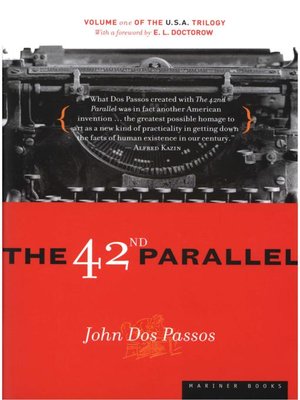 The 42nd Parallel
by
John Dos Passos
The trilogy opens with THE 42nd PARALLEL, where we find a young country at the dawn of the twentieth century. Slowly, in stories artfully spliced together, the lives and fortunes of five characters unfold. Mac, Janey, Eleanor, Ward, and Charley are caught on the storm track of this parallel and blown New Yorkward. As their lives cross and double back again, the likes of Eugene Debs, Thomas Edison, and Andrew Carnegie make cameo appearances.
The 42nd Parallel
by
John Dos Passos
The trilogy opens with THE 42nd PARALLEL, where we find a young country at the dawn of the twentieth century. Slowly, in stories artfully spliced together, the lives and fortunes of five characters unfold. Mac, Janey, Eleanor, Ward, and Charley are caught on the storm track of this parallel and blown New Yorkward. As their lives cross and double back again, the likes of Eugene Debs, Thomas Edison, and Andrew Carnegie make cameo appearances.
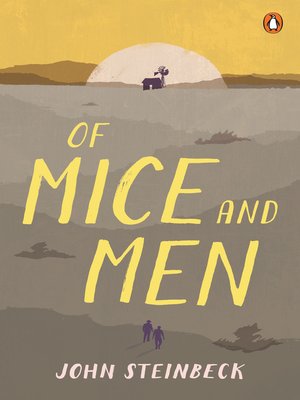 Of Mice and Men
by
John Steinbeck
Over seventy-five years since its first publication, Steinbeck's tale of commitment, loneliness, hope, and loss remains one of America's most widely read and taught novels. An unlikely pair, George and Lennie, two migrant workers in California during the Great Depression, grasp for their American Dream. They hustle work when they can, living a hand-to-mouth existence. For George and Lennie have a plan: to own an acre of land and a shack they can call their own. When they land jobs on a ranch in the Salinas Valley, the fulfillment of their dream seems to be within their grasp. But even George cannot guard Lennie from the provocations, nor predict the consequences of Lennie's unswerving obedience to the things George taught him.
Of Mice and Men
by
John Steinbeck
Over seventy-five years since its first publication, Steinbeck's tale of commitment, loneliness, hope, and loss remains one of America's most widely read and taught novels. An unlikely pair, George and Lennie, two migrant workers in California during the Great Depression, grasp for their American Dream. They hustle work when they can, living a hand-to-mouth existence. For George and Lennie have a plan: to own an acre of land and a shack they can call their own. When they land jobs on a ranch in the Salinas Valley, the fulfillment of their dream seems to be within their grasp. But even George cannot guard Lennie from the provocations, nor predict the consequences of Lennie's unswerving obedience to the things George taught him.
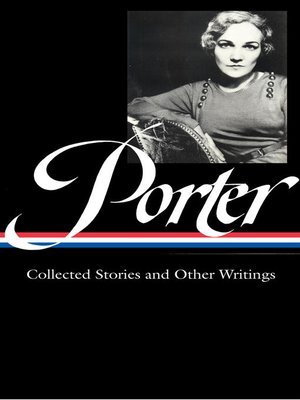 Katherine Anne Porter Collected Stories & Other Writings
by
Katherine Anne Porter
Eudora Welty said that Katherine Anne Porter ?writes stories with a power that stamps them to their very last detail on the memory.? Set in her native Texas and her beloved Mexico, prewar Nazi Germany and the gothic Old South, they are stories of love, outrage, betrayal, and spiritual reckoning that are severe but never cruel, and always exquisitely precise. They number fewer than thirty, but as Robert Penn Warren commented, ?many are unsurpassed in modern fiction,? and when gathered in one volume in 1965 they won their author both the Pulitzer Prize and the National Book Award.
Katherine Anne Porter Collected Stories & Other Writings
by
Katherine Anne Porter
Eudora Welty said that Katherine Anne Porter ?writes stories with a power that stamps them to their very last detail on the memory.? Set in her native Texas and her beloved Mexico, prewar Nazi Germany and the gothic Old South, they are stories of love, outrage, betrayal, and spiritual reckoning that are severe but never cruel, and always exquisitely precise. They number fewer than thirty, but as Robert Penn Warren commented, ?many are unsurpassed in modern fiction,? and when gathered in one volume in 1965 they won their author both the Pulitzer Prize and the National Book Award.
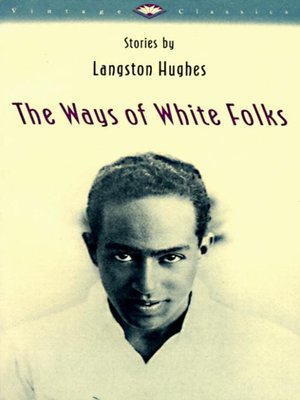 The Ways of White Folks
by
Langston Hughes
In these acrid and poignant stories, Hughes depicted black people colliding—sometimes humorously, more often tragically—with whites in the 1920s and '30s.
The Ways of White Folks
by
Langston Hughes
In these acrid and poignant stories, Hughes depicted black people colliding—sometimes humorously, more often tragically—with whites in the 1920s and '30s.
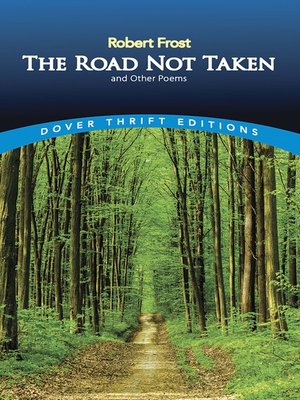 The Road Not Taken and Other Poems
by
Robert Frost
"These deceptively simple lines from the title poem of this collection suggest Robert Frost at his most representative: the language is simple, clear and colloquial, yet dense with meaning and wider significance. Drawing upon everyday incidents, common situations and rural imagery, Frost fashioned poetry of great lyrical beauty and potent symbolism. Now a selection of the best of his early works is available in this volume, originally published in 1916 under the title Mountain Interval.
The Road Not Taken and Other Poems
by
Robert Frost
"These deceptively simple lines from the title poem of this collection suggest Robert Frost at his most representative: the language is simple, clear and colloquial, yet dense with meaning and wider significance. Drawing upon everyday incidents, common situations and rural imagery, Frost fashioned poetry of great lyrical beauty and potent symbolism. Now a selection of the best of his early works is available in this volume, originally published in 1916 under the title Mountain Interval.
 Winesburg, Ohio
by
Sherwood Anderson
Winesburg, Ohio is a series of loosely linked short stories set in the fictional town of Winesburg. The stories are held together by George Willard, a resident to whom the community confide their personal stories and struggles. The townspeople are withdrawn and emotionally repressed and attempt in telling their stories to gain some sense of meaning and dignity in an otherwise desperate life. The work has received high critical acclaim and is considered one of the great American works of the 20th century.
Winesburg, Ohio
by
Sherwood Anderson
Winesburg, Ohio is a series of loosely linked short stories set in the fictional town of Winesburg. The stories are held together by George Willard, a resident to whom the community confide their personal stories and struggles. The townspeople are withdrawn and emotionally repressed and attempt in telling their stories to gain some sense of meaning and dignity in an otherwise desperate life. The work has received high critical acclaim and is considered one of the great American works of the 20th century.
 The American Short Story, 1917
by
Susan Glaspell
Short stories have long been regarded as a potent form of writing. Concentrated and distilled yet engaging the reader at a pace that commands attention in the pages it occupies. Narrative and characters are still fully fleshed and the story is usually no longer, or shorter, than it needs to be. Handed down from the oral tradition they have been variously regarded as 'apprentice pieces' written by authors on their way to becoming better writers as well as fodder for innumerable periodicals over the decades for those who liked their reading in more succinct chunks or perhaps with a 'cliffhanger ending' to keep the interest until the next exciting instalment.
The American Short Story, 1917
by
Susan Glaspell
Short stories have long been regarded as a potent form of writing. Concentrated and distilled yet engaging the reader at a pace that commands attention in the pages it occupies. Narrative and characters are still fully fleshed and the story is usually no longer, or shorter, than it needs to be. Handed down from the oral tradition they have been variously regarded as 'apprentice pieces' written by authors on their way to becoming better writers as well as fodder for innumerable periodicals over the decades for those who liked their reading in more succinct chunks or perhaps with a 'cliffhanger ending' to keep the interest until the next exciting instalment.
 The Jungle
by
Upton Sinclair
Upton Sinclair's The Jungle is a novel portraying the corruption of the American meat industry in the early part of the twentieth century. The dismal living and working conditions and sense of hopelessness prevalent among the impoverished workers is compared to the corruption of the rich. Upton aimed to make such "wage slavery" issues center-stage in the minds of the American public. Despite already being serialized, it was rejected as a novel five times before being published in 1906, when it quickly became a bestseller.
The Jungle
by
Upton Sinclair
Upton Sinclair's The Jungle is a novel portraying the corruption of the American meat industry in the early part of the twentieth century. The dismal living and working conditions and sense of hopelessness prevalent among the impoverished workers is compared to the corruption of the rich. Upton aimed to make such "wage slavery" issues center-stage in the minds of the American public. Despite already being serialized, it was rejected as a novel five times before being published in 1906, when it quickly became a bestseller.
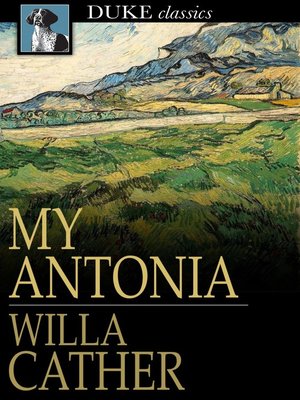 My Antonia
by
Willa Cather
My Ántonia, first published 1918, is one of Willa Cather's greatest works. It is the last novel in the Prairie trilogy, preceded by O Pioneers! and The Song of the Lark. My Ántonia tells the stories of several immigrant families who move out to rural Nebraska to start new lives in America, with a particular focus on a Bohemian family, the Shimerdas, whose eldest daughter is named Ántonia. The book's narrator, Jim Burden, arrives in the fictional town of Black Hawk, Nebraska, on the same train as the Shimerdas, as he goes to live with his grandparents after his parents have died.
My Antonia
by
Willa Cather
My Ántonia, first published 1918, is one of Willa Cather's greatest works. It is the last novel in the Prairie trilogy, preceded by O Pioneers! and The Song of the Lark. My Ántonia tells the stories of several immigrant families who move out to rural Nebraska to start new lives in America, with a particular focus on a Bohemian family, the Shimerdas, whose eldest daughter is named Ántonia. The book's narrator, Jim Burden, arrives in the fictional town of Black Hawk, Nebraska, on the same train as the Shimerdas, as he goes to live with his grandparents after his parents have died.
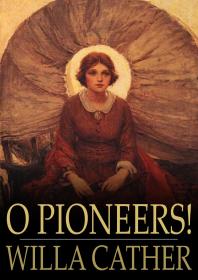 O Pioneers!
by
Willa Cather
A Swedish family migrate to Nebraska at the turn of the 20th century. The daughter of the family inherits the land when her father dies, and the story follows her struggle to maintain it when many around her are leaving the prairie in defeat. There are two romantic narratives in the novel: that of the daughter and a family friend, and of her brother and a married woman.
O Pioneers!
by
Willa Cather
A Swedish family migrate to Nebraska at the turn of the 20th century. The daughter of the family inherits the land when her father dies, and the story follows her struggle to maintain it when many around her are leaving the prairie in defeat. There are two romantic narratives in the novel: that of the daughter and a family friend, and of her brother and a married woman.
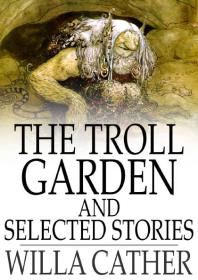 The Troll Garden and Selected Stories
by
Willa Cather
Virginia-born writer Willa Cather burst onto the American literary scene with this riveting collection of short stories, all loosely yoked together via the theme of the arts, artists, and creativity. Fans of Cather's later work will be surprised at the sophistication of these assured, mannered early pieces, which hint strongly of her admiration for the fiction of Henry James.
The Troll Garden and Selected Stories
by
Willa Cather
Virginia-born writer Willa Cather burst onto the American literary scene with this riveting collection of short stories, all loosely yoked together via the theme of the arts, artists, and creativity. Fans of Cather's later work will be surprised at the sophistication of these assured, mannered early pieces, which hint strongly of her admiration for the fiction of Henry James.
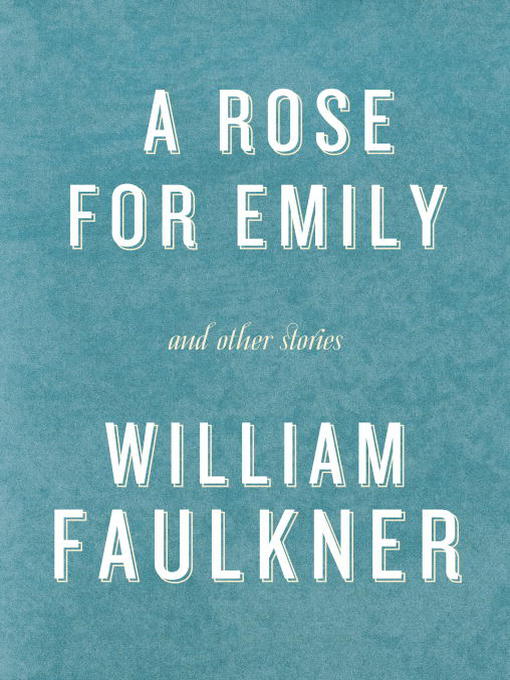 A Rose for Emily and Other Stories
by
William Faulkner
Included:
A Rose for Emily;
The Hound;
Turn About;
That Evening Sun;
Dry September;
Delta Autumn;
Barn Burning;
An Odor of Verbena
A Rose for Emily and Other Stories
by
William Faulkner
Included:
A Rose for Emily;
The Hound;
Turn About;
That Evening Sun;
Dry September;
Delta Autumn;
Barn Burning;
An Odor of Verbena
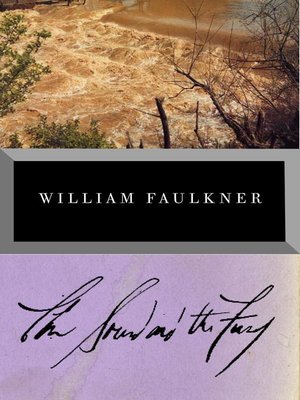 The Sound and the Fury
by
William Faulkner
"I give you the mausoleum of all hope and desire. . . . I give it to you not that you may remember time, but that you might forget it now and then for a moment and not spend all of your breath trying to conquer it. Because no battle is ever won he said. They are not even fought. The field only reveals to man his own folly and despair, and victory is an illusion of philosophers and fools." —from The Sound and the Fury
The Sound and the Fury
by
William Faulkner
"I give you the mausoleum of all hope and desire. . . . I give it to you not that you may remember time, but that you might forget it now and then for a moment and not spend all of your breath trying to conquer it. Because no battle is ever won he said. They are not even fought. The field only reveals to man his own folly and despair, and victory is an illusion of philosophers and fools." —from The Sound and the Fury
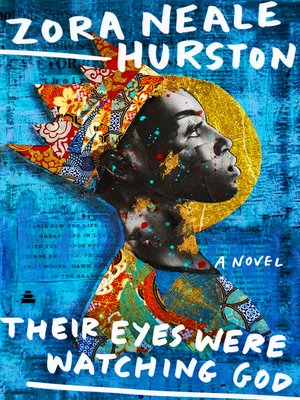 Their Eyes Were Watching God
by
Zora Neale Hurston
One of the most important and enduring books of the twentieth century, Their Eyes Were Watching God brings to life a Southern love story with the wit and pathos found only in the writing of Zora Neale Hurston. Out of print for almost thirty years—due largely to initial audiences' rejection of its strong black female protagonist—Hurston's classic has since its 1978 reissue become perhaps the most widely read and highly acclaimed novel in the canon of African-American literature.
Their Eyes Were Watching God
by
Zora Neale Hurston
One of the most important and enduring books of the twentieth century, Their Eyes Were Watching God brings to life a Southern love story with the wit and pathos found only in the writing of Zora Neale Hurston. Out of print for almost thirty years—due largely to initial audiences' rejection of its strong black female protagonist—Hurston's classic has since its 1978 reissue become perhaps the most widely read and highly acclaimed novel in the canon of African-American literature.
![]()
Go to OneSearch to search for more print books.
Want more on finding print books? Try our How to Use OneSearch guide.
© 2024 COM Library
1200 Amburn Road, Texas City, Texas 77591
409-933-8448 . FAX 409-933-8030
This work is licensed under a Creative Commons Attribution-NonCommercial 4.0 International License